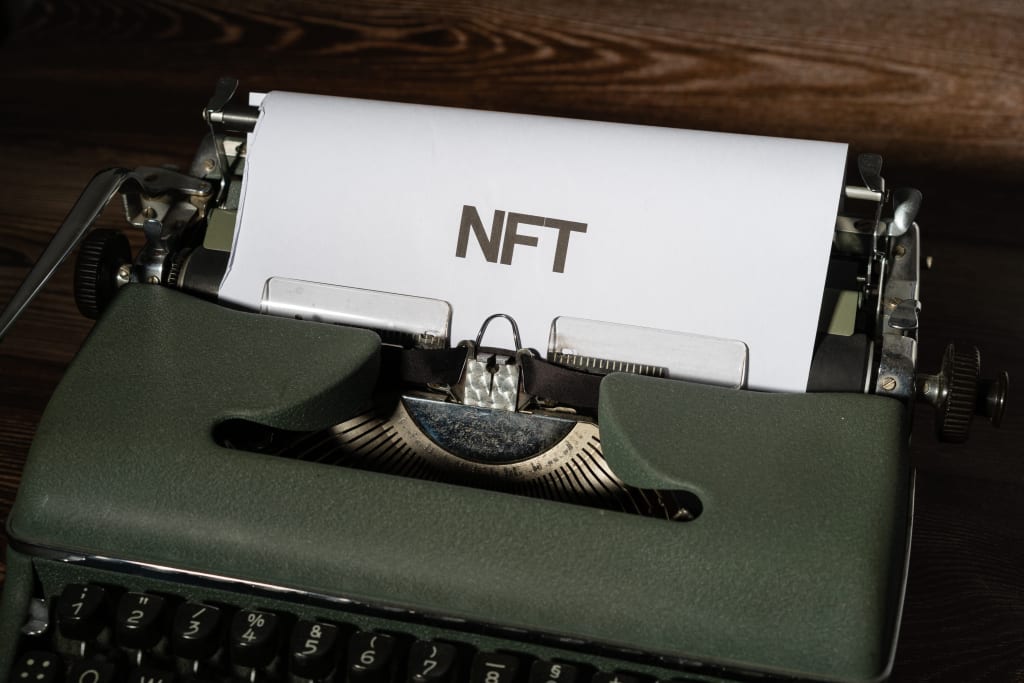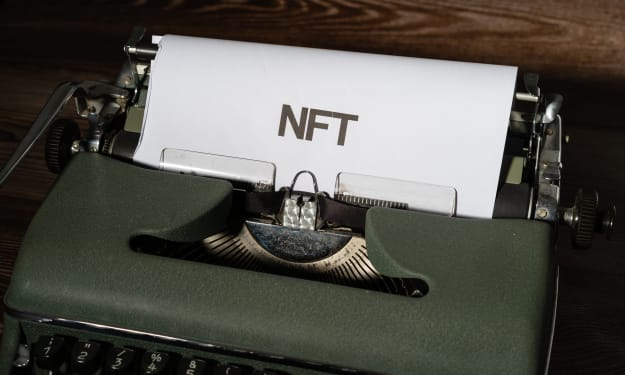Unleashing the Power of Blockchain: How NFTs are Revolutionizing Art Authentication
Exploring the Role of Blockchain in Ensuring the Authenticity of Digital Art

The art world is in the midst of a digital revolution. With the advent of blockchain technology and Non-Fungible Tokens (NFTs), the way we authenticate, buy, and sell art is changing rapidly. NFTs have been making headlines recently, with digital artworks selling for millions of dollars at auctions. But what are NFTs, and how do they work?
NFTs are digital tokens that are unique, non-interchangeable, and indivisible. They are created using blockchain technology, which means that they are secure, transparent, and tamper-proof. NFTs can be used to represent any type of digital asset, including artwork, music, videos, and even tweets.
One of the biggest advantages of NFTs is that they enable artists to authenticate their digital creations. In the past, it was difficult to prove the ownership and authenticity of digital art. This made it easy for people to create copies of artwork and sell them as originals. However, with NFTs, artists can create a digital certificate of authenticity that is stored on the blockchain. This certificate includes information about the artwork, such as the title, the artist's name, and the date of creation. Once the certificate is created, it cannot be altered or deleted, ensuring that the artwork is always authentic.
NFTs have also made it easier for artists to monetize their digital creations. In the past, it was difficult for artists to sell their digital art because it was easy for people to copy and distribute it for free. However, with NFTs, artists can create a limited edition of their artwork that is unique and cannot be replicated. They can then sell these limited editions as NFTs, and collectors can buy them as a way of owning a piece of the artwork.
Another advantage of NFTs is that they can help to protect the rights of artists. With traditional art sales, once an artwork is sold, the artist no longer has control over it. However, with NFTs, artists can include smart contracts in their sales, which means that they can receive a percentage of the profits every time the artwork is sold in the future. This gives artists more control over their work and ensures that they are fairly compensated for their creations.
Moreover, NFTs have the potential to change the way we perceive and value art. The traditional art world has always placed a high value on physical art pieces. However, with the rise of NFTs, digital art is gaining more recognition and value. NFTs allow collectors to own a unique and authentic piece of digital art, which they can display on their screens or digital frames. This opens up new possibilities for artists to create and sell art that was previously undervalued or ignored.
Furthermore, NFTs have created a new marketplace for digital art. In the past, it was difficult for digital artists to find a platform to sell their work. However, with NFTs, artists can sell their work directly to collectors without the need for intermediaries such as galleries or auction houses. This has created a more democratic and accessible art market, where artists and collectors can connect directly with each other.
Despite the many advantages of NFTs, there are also some concerns about their impact on the environment. The process of creating and trading NFTs requires a significant amount of energy, which contributes to the carbon footprint of the art industry. However, efforts are being made to find more sustainable ways to create and trade NFTs.
However, as with any new technology, there are concerns and challenges that need to be addressed. One of the main concerns is the environmental impact of NFTs. The process of creating and trading NFTs requires a significant amount of energy, which contributes to the carbon footprint of the art industry. This has led to debates about the sustainability of NFTs and the need for more eco-friendly solutions.
Another challenge is the potential for fraud and scams in the NFT market. With the increasing popularity of NFTs, there have been cases of fake NFTs being sold, or artists being misrepresented. This highlights the need for transparency and regulation in the NFT market to ensure that collectors are buying authentic pieces and that artists are being fairly compensated for their work.
Despite these challenges, NFTs are here to stay and are likely to become even more prevalent in the art world. They offer a unique opportunity for artists to authenticate and monetize their digital creations, and for collectors to own a unique and authentic piece of art. As the technology behind NFTs continues to evolve and improve, it is likely that we will see even more innovative uses for NFTs in the future.
In conclusion, NFTs are a game-changer for the art world, and their impact is only just beginning to be felt. They have the potential to transform the way we authenticate, value, and sell art, and to create new opportunities for artists and collectors alike. However, it is important to address the challenges and concerns that come with this new technology and to work towards a sustainable, transparent, and fair NFT market.
About the Creator
Balla Adorján
As a writer, I understand the importance of tailoring my writing style to suit the needs of the specific project, whether that be a formal academic article or a fun and lighthearted blog post.
Enjoyed the story? Support the Creator.
Subscribe for free to receive all their stories in your feed. You could also pledge your support or give them a one-off tip, letting them know you appreciate their work.






Comments
There are no comments for this story
Be the first to respond and start the conversation.